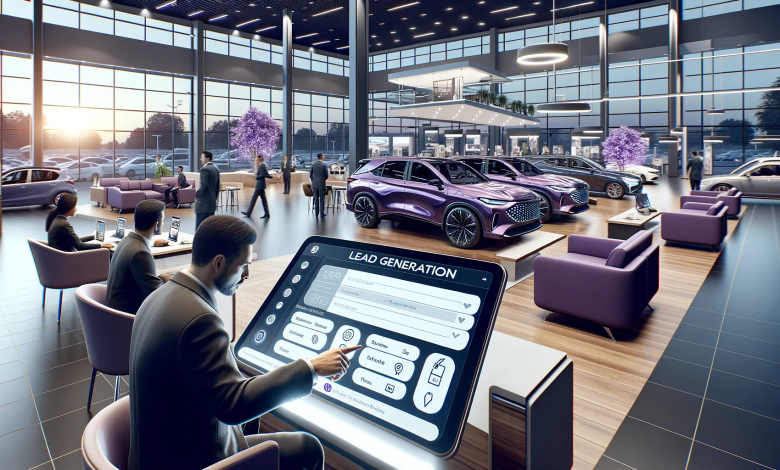The Tech Revolution in Car Selling: How AI and Digital Platforms Are Disrupting Traditional Dealerships

The used car industry has long been synonymous with pushy salespeople, opaque pricing, and hours spent negotiating in showrooms. But 2025 marks a turning point. Artificial intelligence, machine learning, and digital-first platforms are fundamentally reshaping how vehicles change hands—and traditional dealerships are scrambling to keep up.
This isn’t just incremental improvement. We’re witnessing the kind of disruption that transformed industries like hospitality (Airbnb), transportation (Uber), and retail (Amazon). The difference? This revolution puts control, transparency, and speed directly into the hands of car sellers, eliminating the friction that has plagued the industry for decades.
The Traditional Car Selling Model Is Broken
Anyone who has tried to sell a car knows the pain points intimately. The private sale route means listing on multiple platforms, responding to dozens of lowball offers and spam messages, scheduling test drives with strangers, worrying about payment scams, and navigating DMV paperwork that varies by state.
Dealership trade-ins seem easier but come with their own problems. Dealers need to make profit margins when they resell your vehicle, which means offering you well below market value. The lack of transparency means you never really know if you’re getting a fair deal. And the high-pressure sales environment—where saying you want to sell your car somehow turns into a three-hour pitch to buy a new one—wastes valuable time.
The information asymmetry is perhaps the biggest issue. Dealers have access to wholesale auction data, market trends, and pricing algorithms that give them massive advantages in negotiations. Individual sellers are left guessing whether an offer is reasonable or whether they’re being taken advantage of.
These frustrations have existed for generations, but only recently has technology advanced enough to offer genuine alternatives that solve these problems at scale.
How Technology Is Transforming the Industry
The convergence of several technologies is creating a perfect storm for disruption. Artificial intelligence can now accurately assess vehicle conditions from photos, predict fair market values based on millions of data points, and automate paperwork that previously required hours of manual work.
Machine learning algorithms analyze real-time market data from thousands of sources—recent sales, auction prices, regional demand patterns, seasonal trends—to generate pricing that’s both fair to sellers and sustainable for buyers. These systems get smarter over time, continuously improving their accuracy with each transaction.
AI-Powered Vehicle Valuation Systems
Traditional vehicle valuation relied on outdated methods. Kelley Blue Book and similar services provided rough estimates based on historical data, but they couldn’t account for real-time market fluctuations, regional variations, or the specific condition of individual vehicles.
Modern AI systems process images of vehicles to assess condition, identifying everything from minor cosmetic damage to mechanical concerns that affect value. Computer vision technology can detect issues that might be missed in casual inspections, providing more accurate valuations.
Natural language processing allows these systems to parse vehicle history reports, maintenance records, and market listings to build comprehensive value profiles. The result is pricing that reflects actual market conditions, not outdated book values.
Blockchain technology is also entering the space, creating immutable records of vehicle ownership, maintenance history, and accident reports. This transparency benefits both buyers and sellers by reducing fraud and increasing confidence in transactions.
The Rise of Digital-First Car Buying Platforms
Traditional dealerships are physical-first businesses with digital add-ons. The new generation of platforms is digital-first, with physical operations designed purely to support the online experience. This fundamental difference changes everything about how transactions work.
These platforms eliminate the dealership middleman entirely. Instead of a dealer buying your car at wholesale prices and reselling it for profit, digital platforms connect sellers more directly with end buyers or wholesale markets, capturing more of the transaction value for the seller.
The user experience is radically simplified. Where traditional selling might involve dozens of interactions over weeks or months, digital platforms compress the entire process into a few simple steps that can be completed in days or even hours.
Mobile-first interfaces recognize that most users are researching and making decisions on their phones, not desktops. The entire transaction flow—from valuation to payment—can be handled from your smartphone, fitting into your life rather than requiring you to block off half a day to visit a dealership.
Case Study: How Platforms Like WhipFlip Use Tech
Companies like WhipFlip exemplify this new approach. Their platform uses AI-driven valuation to provide instant quotes based on vehicle information sellers input online. The system analyzes current market data, comparable sales, and vehicle-specific factors to generate competitive offers in minutes.
The entire paperwork process is digitized. Electronic signatures, automated DMV integrations, and digital title transfers eliminate the need for in-person visits or mailing documents back and forth. What used to take weeks now happens in days.
Payment security is built into the platform, with verified electronic transfers replacing the risk of bounced checks or fraudulent cashier’s checks that plague private sales. Sellers receive payment quickly—often within 24-48 hours of acceptance—without worrying about scams.
Vehicle pickup is coordinated through the platform, with transportation arranged at the seller’s convenience. There’s no need to meet strangers for test drives or worry about getting to a dealership during business hours.
This tech-enabled approach solves virtually every pain point of traditional car selling while delivering fair market value that’s typically higher than dealer trade-ins and competitive with private sales—minus all the hassle.
Benefits of Digital Car Selling Platforms
The advantages of this new model extend beyond mere convenience. Speed is perhaps the most obvious benefit. According to industry research, private car sales traditionally take 30-45 days on average from initial listing to completed transaction. Digital platforms compress this timeline to less than a week in many cases, with some transactions completing in 48 hours.
Transparency is another major win. Instead of opaque negotiations where you never know if you’re getting a fair deal, digital platforms provide clear, data-driven valuations. You can see comparable sales, understand how your vehicle’s condition affects pricing, and make informed decisions without feeling pressured.
The convenience factor cannot be overstated. Completing an entire transaction from your couch, on your schedule, without taking time off work or spending Saturday afternoon at a dealership, represents a fundamental improvement in user experience. For busy professionals, parents, or anyone who values their time, this alone justifies the platform approach.
Pricing is competitive because these platforms operate with lower overhead than traditional dealerships. Without expensive lots, large sales teams, and extensive physical infrastructure, they can pass savings directly to sellers through higher purchase prices.
Security and fraud prevention are built into the platform rather than being the seller’s responsibility. You don’t need to worry about accepting fake cashier’s checks, meeting sketchy buyers in parking lots, or having your identity stolen through document handling. The platform manages risk and ensures legitimate transactions.
The Technology Behind Seamless Transactions
Behind the simple user interface lies sophisticated technology infrastructure. API integrations with state DMV systems allow platforms to access vehicle history, verify ownership, and process title transfers electronically. This eliminates the single biggest pain point in private sales—paperwork confusion.
Digital payment systems use banking-grade security and fraud detection. Funds are verified before transactions complete, eliminating the risk of bounced checks or payment disputes that can occur weeks after a private sale.
Electronic signatures have been legally valid for years, but automotive platforms have only recently built them into comprehensive transaction flows. Every document—purchase agreements, odometer disclosures, title transfers—can be signed digitally from any device, with full legal validity.
Automated logistics coordination connects with vehicle transportation companies to schedule pickup. Sellers receive text updates about timing, and drivers have digital records of the transaction, ensuring smooth handoffs without confusion.
Data analytics continuously improve the system. Every transaction generates data that helps refine pricing algorithms, improve user experience, and identify potential issues before they become problems. The platforms literally get smarter with every car they process.
What This Means for Consumers
For consumers, this technological revolution means more control over one of life’s most significant financial transactions. You’re no longer at the mercy of dealer negotiations or hoping the right private buyer sees your listing. You have access to institutional-grade pricing and professional-grade transaction support.
The stress factor is dramatically reduced. Selling a car no longer means weekends spent with tire-kickers, evenings responding to lowball offers, or anxiety about payment scams. The technology handles these concerns, freeing you to focus on what matters—getting fair value quickly so you can move forward with your life.
Time savings translate directly to financial value. If a digital platform can complete your transaction in a week versus the month or more required for private sales, that’s three weeks you’re not paying insurance, not worrying about maintenance issues cropping up, and not having a depreciating asset sitting in your driveway.
The democratization of information is perhaps the most significant long-term impact. When both parties in a transaction have access to the same market data and pricing algorithms, the dynamics shift from adversarial negotiation to straightforward transaction. This benefits consumers far more than it benefits the dealerships that previously profited from information advantages.
The Future of Car Transactions
This is just the beginning. According to a 2024 report by McKinsey & Company, online vehicle sales are projected to grow significantly, with digital channels expected to account for a much larger share of used car transactions by 2030. The trend is accelerating, not slowing down.
Autonomous vehicle pickup is on the horizon. Imagine scheduling a sale and having your car autonomously drive itself to a processing center. While this sounds like science fiction, companies are already testing the logistics.
Augmented reality vehicle inspections could allow platforms to assess vehicle condition without physical inspection, using smartphone cameras and AR overlays to guide sellers through documentation. This would eliminate even the vehicle pickup step, with transportation arranged only after remote purchase confirmation.
Integration with ride-sharing and subscription services will blur the lines between ownership, rental, and on-demand access. Selling your car might become part of a seamless transition to mobility-as-a-service, with the same platform managing your vehicle sale and your new transportation subscription.
The Decline of Physical Dealerships
Traditional dealerships aren’t going extinct overnight, but their role is definitely shrinking. Many are pivoting to focus on new car sales and service, ceding the used car market to more efficient digital platforms. Those that survive will likely be the ones that embrace technology rather than resist it.
The massive overhead of physical lots, large sales teams, and traditional advertising becomes harder to justify when digital platforms can deliver better results at lower cost. Real estate that once housed car lots may find new purposes as the industry continues its digital transformation.
For consumers, this means more options, better pricing, and superior experiences. Competition between platforms will drive continued innovation, pushing the industry toward ever-greater efficiency and user satisfaction.
Conclusion: Embrace the Digital Revolution
The technological revolution in car selling isn’t coming—it’s already here. The platforms, algorithms, and infrastructure exist today, processing thousands of transactions monthly and proving the model works at scale.
The question for individual car sellers is simple: do you want to embrace the future or cling to outdated methods? Do you want to spend weeks navigating the frustrations of traditional selling, or do you want your car sold in days with minimal effort?
Technology has disrupted industry after industry by identifying inefficiencies and building better solutions. The automotive sales industry’s turn has arrived. Early adopters who leverage these platforms will wonder why they ever considered doing it the old way.
The future of car selling is digital, data-driven, and designed around user needs rather than dealer profits. For anyone looking to sell their vehicle in 2025 and beyond, understanding and utilizing these technological advances isn’t optional—it’s essential.
The revolution is here. Time to get on board.




